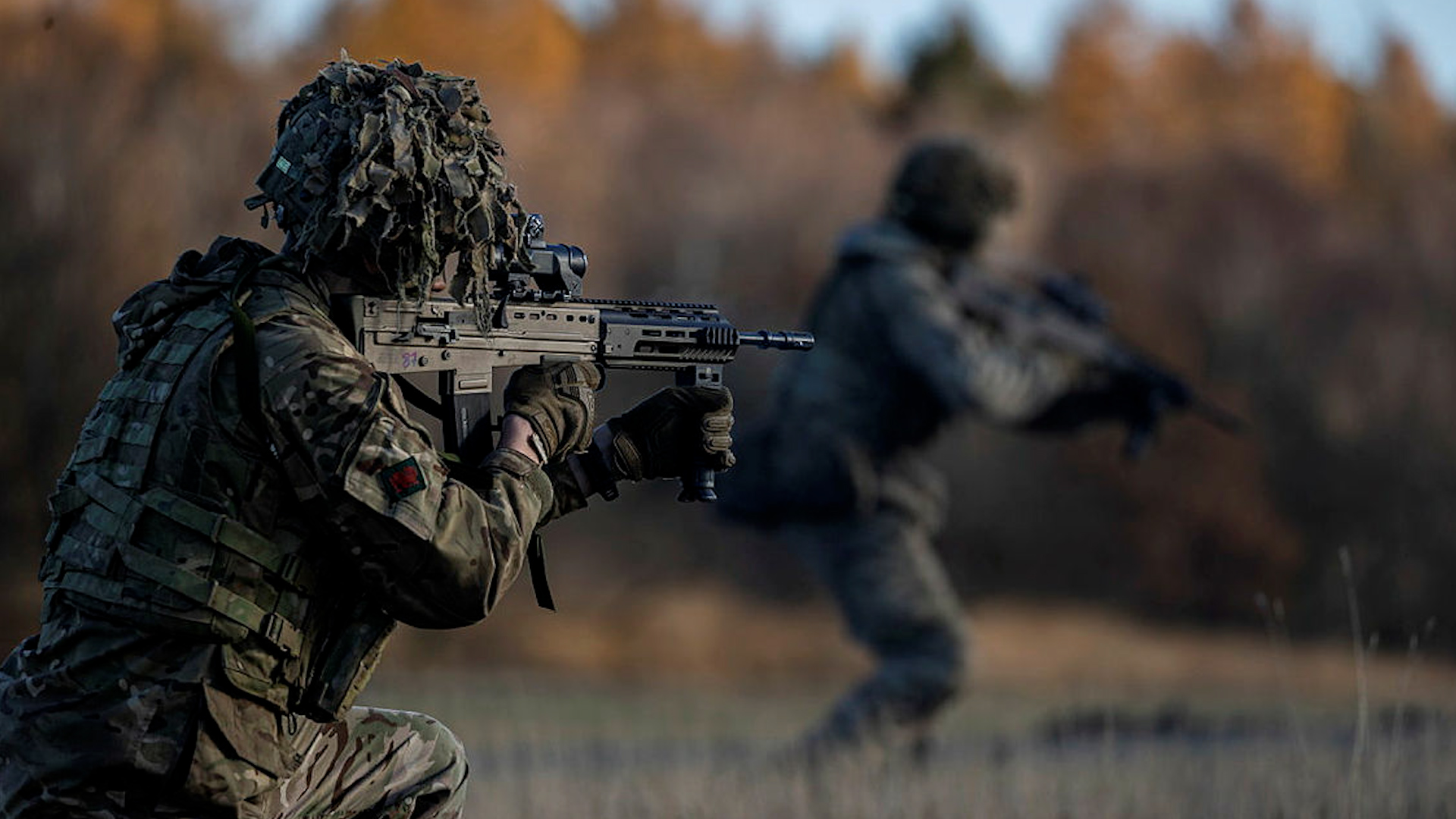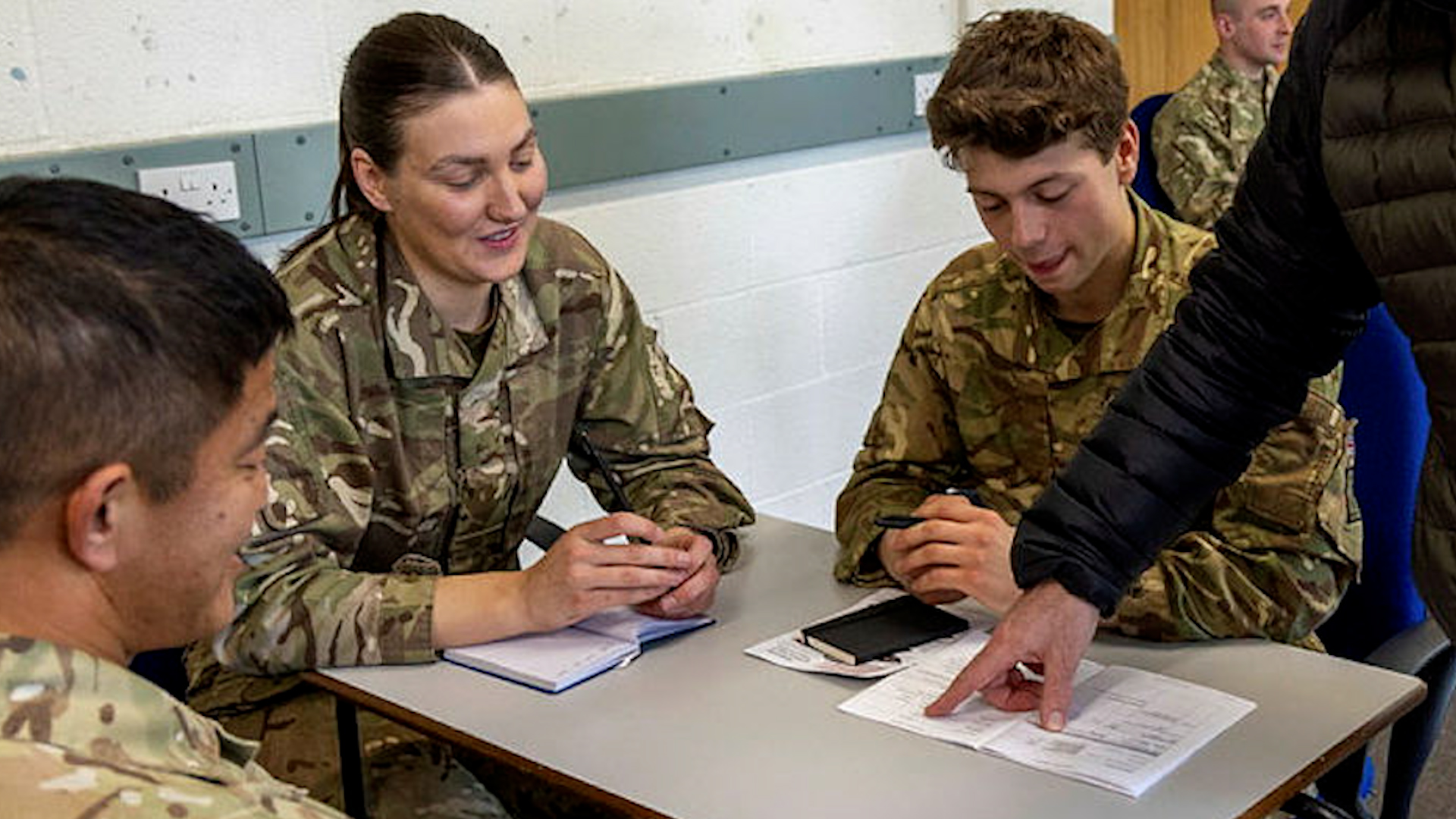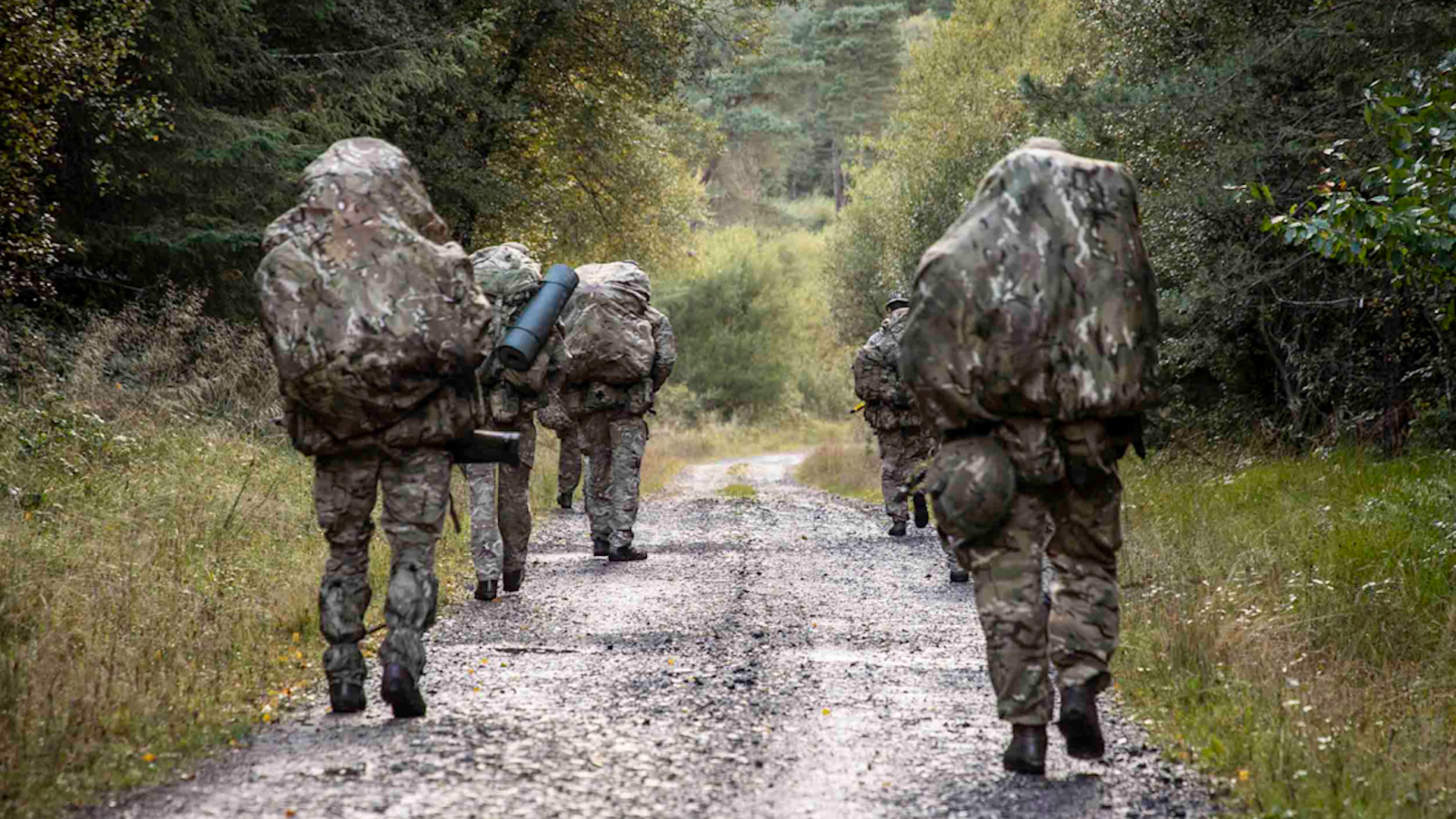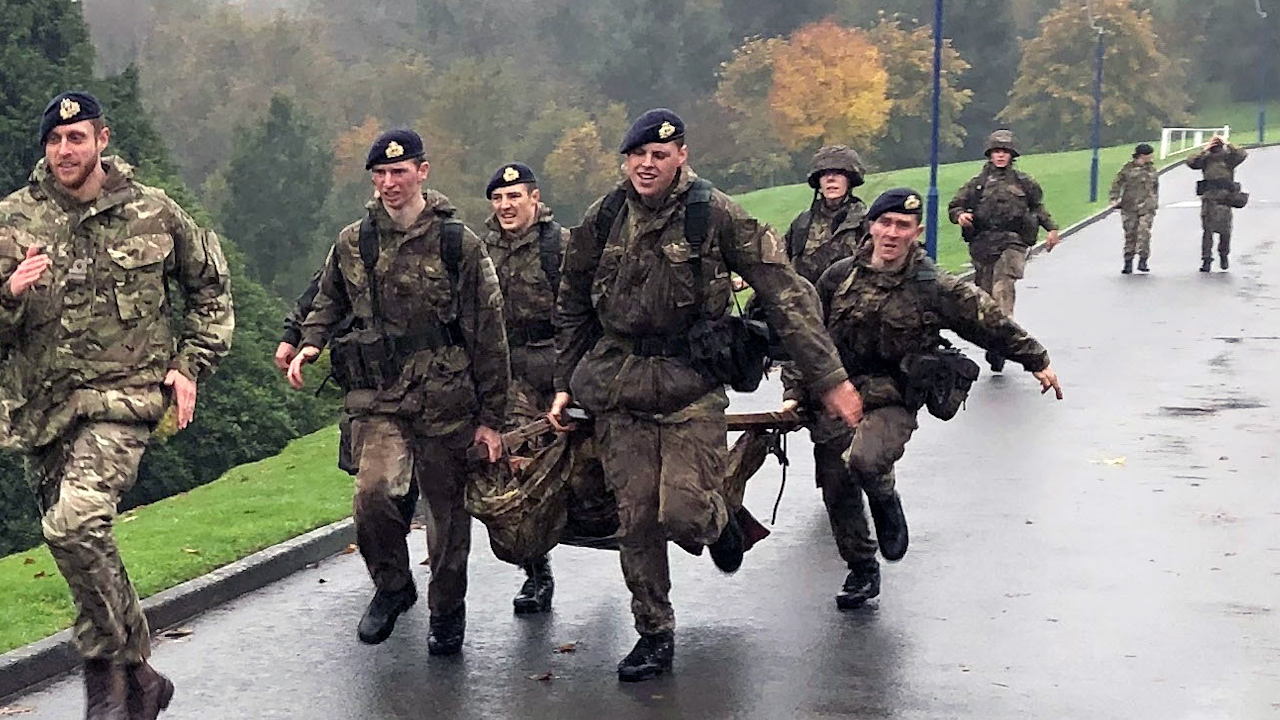
National Service is a laudable idea, but why not use Cadet Forces and Scouts instead?

Recently retired Royal Navy Commodore Steve Prest was Deputy Director of People Change in Navy Command HQ before he left the service.
He believes the military could play a part in young people's participation in society and a year's exposure to the Armed Forces may well be a good thing.
However, he foresees many issues and suggests why not just build out of our Cadet Forces?
As part of his campaign for re-election, the Prime Minister announced that the Conservative Party would introduce a new form of National Service for 18-year-olds if re-elected.
The PM said there would be a system for a "competitive full-time military commission" for a year; or one weekend of volunteering for a month for everyone else.
The choice of the word "commission" is interesting.
Does he mean that this is intended to be a reintroduction and extension of the Army's "Short Service Limited Commission" scheme?
This is where young people would do a short course at Sandhurst and then serve in the Army for a year as a subaltern officer.
Amongst others, Rory Stewart undertook such a commission and there's no doubt that such roles were fantastic opportunities for young men (it was pretty much all men at that time) to gain early experience in command, leadership, responsibility and adventure.
The challenge with this system is that it is limited to pretty small numbers. The training, over something like eight weeks, is just enough for someone to learn some drill, understand how to wear a uniform properly and know their way around a tactical estimate and the orders process.
Obviously, there's a limited amount of technical training that can be conducted whilst still getting a sensible proportion of useful work out of such people.

If the intent is to expand the scheme to include "other ranks", then there is an opportunity for greater numbers but the challenges multiply. In either case, what would it take to make such a scheme work?
In the first instance, selection and recruitment. It would take a significant expansion of the Armed Forces' Recruitment Programme to manage the selection and recruitment of National Service applicants.
This will be expensive and need significant additional facilities and staff.
How the scheme is administered for those not pursuing the military service option is beyond the scope of this article, but one can imagine the bureaucracy that would be needed, especially if this is to be compulsory and that is to be enforced.
For the Armed Forces, it is likely that the scheme would, in volume terms, be predominantly focused on the Army and, specifically, the infantry.
As we are seeing with the training of Ukrainian soldiers, the training of infanteers can be done to a basic level in a few weeks.
On the face of it, this offers the opportunity to expand the Army's numbers quickly and cheaply whilst giving large numbers of young people an opportunity for training, adventure, structure, service and self-confidence.
What's not to love?
Dig a bit deeper and the challenges start to reveal themselves.
Let's assume that the proposal contains the money to pay the soldiers recruited.
It probably wouldn't be much, and the legislation would almost certainly exempt the MOD from having to pay the National Minimum Wage. But it would still need to be costed.
The tax and national insurance taken from this would be minimal.
Beyond that, who's going to train these soldiers?
A cadre of Non-Commissioned Officers would be needed to provide the training staff. These would need to be people suitable for such instructional duties with young people. Not everybody is.
These would be overseen by senior NCOs and officers in a chain of command.
Given the challenges with retention and recruitment at the moment, the Army may not have such people to spare. What duties will they be relieved from that they are currently performing?
The Navy would literally have to tie ships up alongside to release people for such roles.

Such units would inevitably need administrators to manage them too. This isn't about armies of "faceless bureaucrats", but there is proper work to be done to manage contracts, maintain accounts, run the armouries, manage the facilities and so on.
With a simultaneous reduction of tens of thousands of civil servants, perhaps much of this would be contracted out. Perhaps. But who's going to manage that?
Then there is the question of where they are to be trained. The training infrastructure, as has been widely reported, is in a pretty poor state.
It would need significant investment, over several years, to build the infrastructure necessary to accommodate such trainees. If this money were available, why would we not spend it on fixing the facilities for our regular service personnel first?
It's hardly going to be good for morale and retention if our National Service cadre are in shiny new accommodation whilst our career service people are in draughty, leaking blocks without heating!
These National Service people would also need to be equipped. Issued each with thousands of pounds' worth of clothing, boots, sleeping bags, webbing, rucksacks (bergens in the jargon) and so on; let alone the rifles, radios and vehicles necessary to allow them to be effective soldiers (or aviators, sailors or marines).
And the activity they undertake also costs money – the ranges, adventurous training, ammunition, transport, victuals, etc, etc.
Perhaps this is all accounted for in the £2.5bn allocated for the scheme. Perhaps not. Without the details, we simply don't know.
Finally, there is the question of employment. Let's assume that all of the above is solved and every few weeks out pop a number of freshly minted 18-year-olds ready to join the Front Line.
Their skills will be limited, of course, and they will still be wet behind the ears, but weren't we all when reporting to our first assignments in uniform?
Will they be integrated into existing units, or have their own? If they have their own, all of the same challenges about setting up training units also apply to the new operational units.

If they're sent to existing units, they are likely to primarily be used as dogsbodies. That's just reality.
There is no point for units in investing significant training time and effort in people who are only going to be there for a few months.
But they could usefully fill guardhouse duties, be a driver for the CO and would be perfect for cleaning and cookhouse detail. Is such employment likely to be fulfilling? Possibly not.
The Navy would have a more specific problem. We simply don't have the bunks available at sea to get all of our trainees through as it is.
So anyone joining the Navy under such a scheme would, of course, have very limited utility at sea owing to their limited training – they would be landlubbers, not seamen – and frankly would be unlikely to get a place afloat in any case.
Of course, there are always "gash jobs" to be done around the dockyards, but it's hardly the "join the Navy and see the world" experience.
If there is a plan to address all of the above, and the resources available to deliver that plan, then a year's exposure to the Armed Forces for a greater proportion of our population may well be a good thing. If.
Nonetheless, I applaud the intent to give young adults more opportunities and an incentive to contribute to society.
There is huge value in service and volunteering.
As JFK famously said: "Ask not what your country can do for you, but rather what you can do for your country."
He was right. Schemes like The Duke of Edinburgh's Award encourage exactly such participation in our society. Perhaps we should invest more in such schemes.
Why mandate volunteering to the weekends? There's plenty to be done on weekday evenings and in school holidays.
Let's build out our Cadet Forces, encourage greater participation through the teenage years and carry on that volunteering into leadership roles into adulthood. Include the Scouts, Guides and so forth.
These are magnificent institutions that genuinely and positively affect the life chances of young people. I wouldn't have achieved what I did in my career were it not for the skills I learnt from scouting.

A friend was telling me just the other day about how as a rugby club coach he was thanked by the grandmother of one of his players.
This lad had joined the club with low self-esteem, mental health challenges and no friends. He was unfit and awkward.
After a year of good coaching, he had a true sense of belonging, he walks upright with a self-confident swagger and real purpose, he's strong and healthy, and has developed into a bloody good rugby player!
She and his parents are convinced that we was "saved" by the coaches at the rugby club. Lots of other such clubs and societies can have a similar impact.
So, if there's £2.5bn (or whatever) to spend on young people's participation in society, I reckon the military could play a part.
But there is a really big landscape out there that we should be investing in to make the most difference to the most young people.
As someone once said, we need a Big Society!









